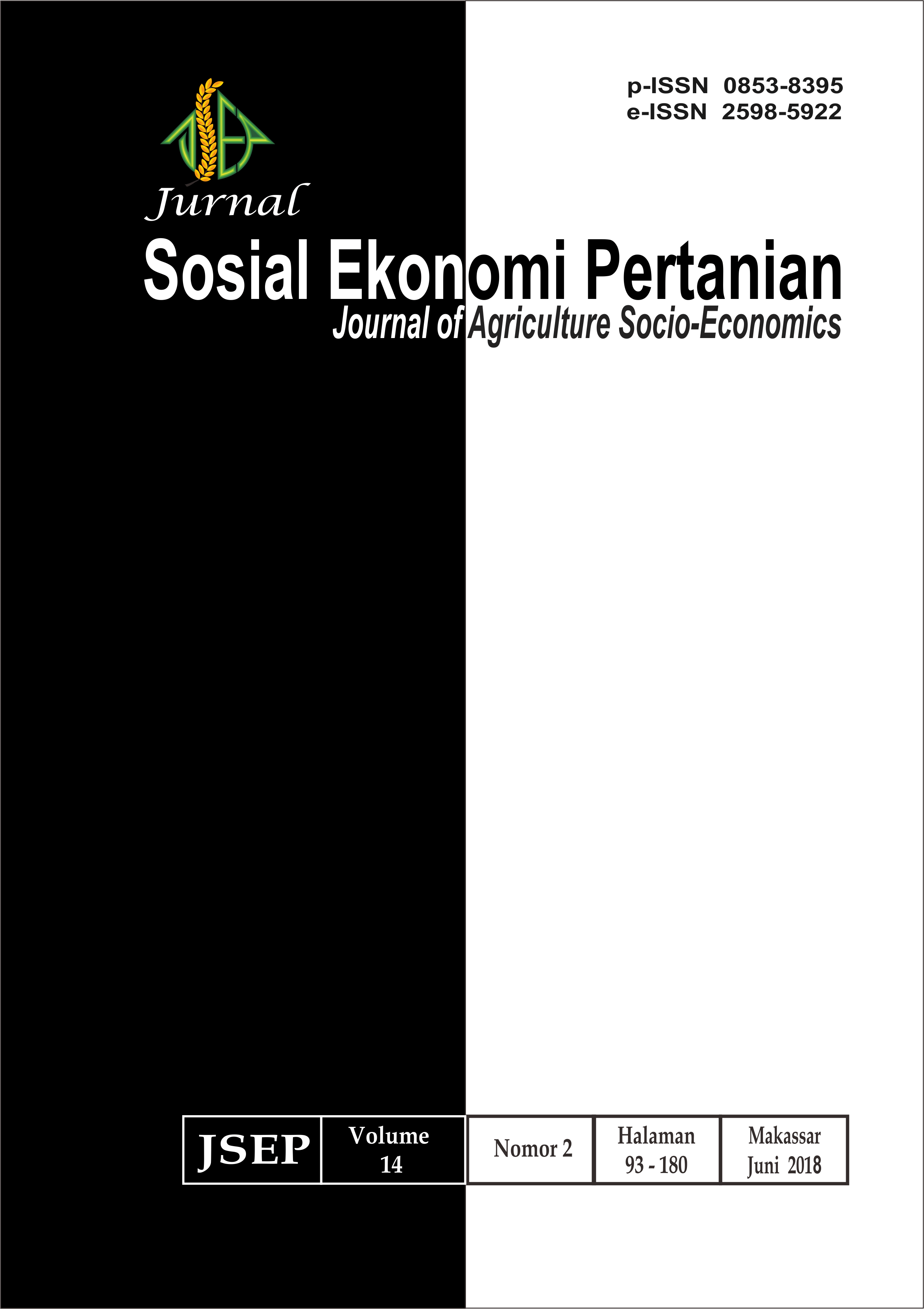NILAI BUDAYA PADA SISTEM USAHATANI POLA ‘DUSUN’ SUKU KANUM DI KAMPUNG YANGGANDUR KABUPATEN MERAUKE
Isi Artikel Utama
Abstrak
NILAI BUDAYA PADA SISTEM USAHATANI POLA ‘DUSUN’ SUKU KANUM DI KAMPUNG YANGGANDUR KABUPATEN MERAUKE
The Cultural Values on ‘Dusun’ Pattern Farming System of The “Kanum” Tribe in Yanggandur Village Merauke Regency
Puji Susanty*, Yunus Musa, Rahmadanih, Sitti Bulkis*Politeknik Pertanian Yasanto, Merauke
(email: pujisusanti74@gmail.com)
Abstract
“Dusun” is a specific area of the traditional land in Kanum Tribe, which been chosen as place for farmer to cultivated as rural areas for families or in Kanum Tribes Group Society that been inherite from generation to generation. This research aimed to describe the cultural values in managing the farming system of “dusun” pattern carried out by indigenous community of Kanum Tribe. The research was conducted in Yanggandur Village, Merauke Regency. Qualitative approach and snowball sampling method were applied to collect the data through interviews from informants. In order to analyze the data it applied data reduction techniques, presentation and conclusion as well as verification. From the research, it was indicated that the prime food crop that cultivated by Kanum Tribe in the “dusun” are ‘kumbili’. The Kanum Tribe still actively managed the farming system of “dusun” pattern because the “kumbili” farming system contained the cultural values which they had inherited from generation to generation. The cultural values contained in “kumbili” cultivation were the safety and religious value, the wisdom and mutual cooperation value, and the responsibility value.
Keywords: cultural value; “dusun” pattern farming; Kanum Tribe.Rincian Artikel
Referensi
Daftar Pustaka
Ali, M. Saleh and Rahmadanih. 2017. Ecological Wisdom in Slash Burning Farming of Remote Indigenous Community in North Mamuju Regency. International Journal of Agriculture System. Vol 5 (2). http://pasca.unhas.ac.id/ojs/index.php/ijas/article/view1256
Badan Pusat Statistik, 2017. Merauke Dalam Angka Tahun 2017. Kantor Statistik Merauke, Papua.
Balai Taman Nasional Wasur (BTNW), 1999. Rencana Pengelolaan Taman Nasional Wasur 1999 – 2024. Buku I.
Darwin, Bauto, L.O.M, Tawolu, M.A. 20… Implementasi Nilai-nilai Sosial Budaya Pokadulu. 2016. http://ojs.uho.ac.id/index.php/NeoSocietal/article/view/3395. Diakses tanggal 26 Juni 2018.
Mulyadi , Iyai D.A, 2016. Pengaruh Nilai Budaya Lokal Terhadap Motivasi Bertani Suku Arfak di Papua Barat. Journal Peternakan Sriwijaya. Vol. 5, No, I. Hal. 21. https://anzdoc.com/pengaruh-nilai-budaya-lokal-terhadap-motivasi-bertani-suku-a.html. Diakses tanggal 26 Juni 2018.
Purwanto Y, Ariane Cosiaux, 2010. Studi Sistem Pertanian Tradisional Masyarakat Negeri Saleman, Seram Utara, Kabupaten Maluku Tengah. Laporan Penelitian COLUPSIA Project, CIRAD dan UNIEROPA.
Ruky, Acmad S, 2017. Budaya, Kebudayaan dan Nilai-nilai Budaya. https://achmadruky.com/321/budaya-kebudayaan-dan-nilai-nilai-budaya. Diakses tanggal 26 Juni 2018.
.Saputra, G.P, 2011. Nilai Budaya, Sistem Nilai dan Orentasi Nilai Budaya. http://wirasaputra.Wordpress.com. Diakses tanggal 5 Februari 2018
Silalahi, U, 2009. Metode Penelitian Sosial. Bandung. PT Refika Aditama
Sugiyono, 2015. Memahami Penelitian Kualitatif. Bandung. CV. Alfabeta.
Sugiyono, 2016. Metode Penelitian Kombinasi. Bandung. CV. Alfabeta

